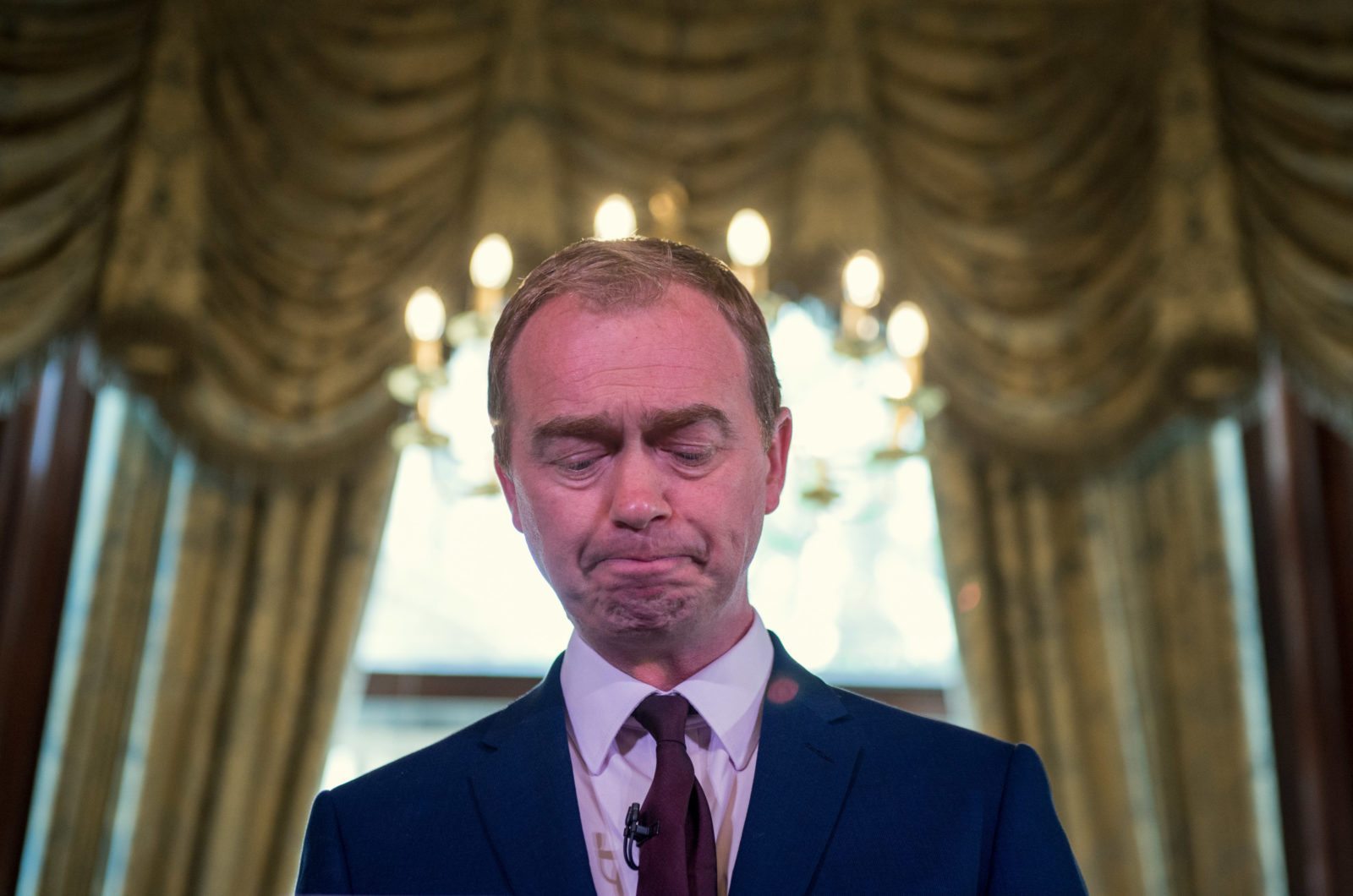Former Lib Dem leader Tim Farron has accepted nearly £75,000 in donations from an organisation whose director tweeted in support of so-called conversion therapy.
Dr David Landrum, director of an organisation called Faith in Public, tweeted a link to an article protesting against proposals to ban gay conversion therapy in July 2018. It is currently Lib Dem party policy to ban the vile practice.
The article Landrum shared stated that many people “would prefer not to have homosexual feelings. Why should they not be entitled to seek escape? Why should others not be free to try to help them?”
Landrum also said Gillette had “lost my custom after the trans shaving ad”. The advert, which was part of the grooming company’s #MyBestSelf campaign, featured a father teaching his transgender son to shave and was widely praised for its inclusivity.
Farron’s register of interests show he received a donation from Faith in Public which provided him with a policy adviser two days a week, worth an estimated maximum value of £9,100.
According to the Independent, the organisation also donated the services of two policy advisers the previous two years at a total value of £50,319, as well as the services of a public relations company to the value of £15,000.
Tim Farron distances himself from evangelical donor.
As Lib Dem members questioned Farron’s decision to accept the donations, the MP distanced himself from Landrum’s comments.
“I don’t agree with everything Dave Landrum says or thinks, and he doesn’t agree with everything I say or think either,” he said on Friday night.
“I support the rights of trans people and strongly believe that they should be treated with equal dignity and respect. I am strongly opposed to conversion therapy – it is completely abhorrent and I will vote to ban it when the legislation comes to parliament.”
Farron’s two-year stint as party leader was marred by accusations of homophobia as he refused to answer whether he believed homosexual sex to be a sin.
He evaded the questions for weeks during the 2017 general election campaign before attempting to salvage his reputation at the height of the row by telling the BBC that he did not view gay sex as a sin.
He resigned shortly after the election result, saying that he felt “remaining faithful to Christ” was incompatible with leading the party. He later admitted that he had misled the public when he said he didn’t believe gay sex was sinful.
